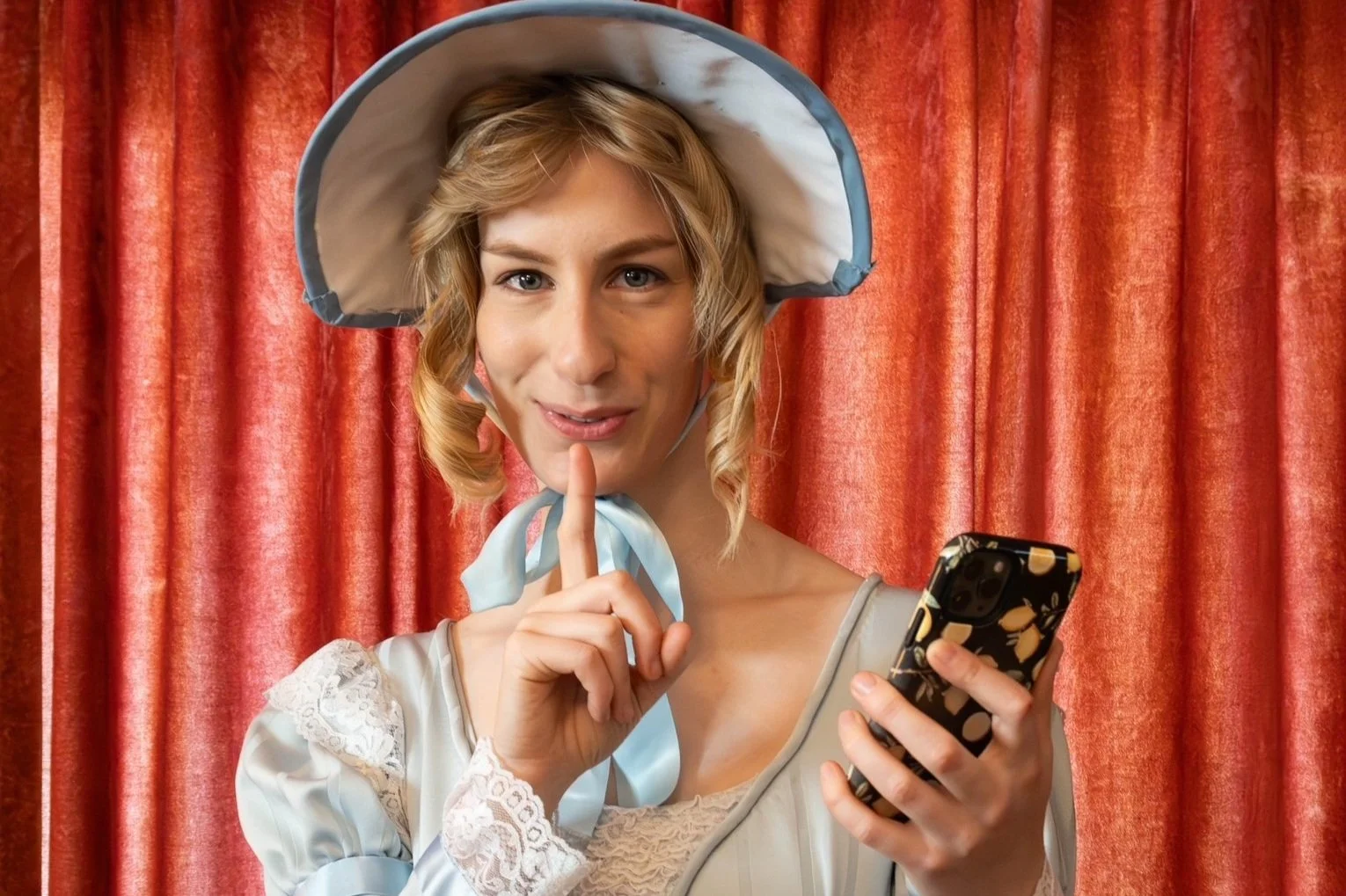At Théâtre la Seizième, Nombre gets to the heart of human connection
The new participatory show by Quebec’s Alpha Charlie Kilo is a collective experience
An ingenious number system helps the story come together in the immersive theatre piece Nombre. Photo by Stéphane Bourgeois
Théâtre la Seizième presents Nombre, an adaptation of the original production by Quebec’s Alpha Charlie Kilo, from November 2 to 6 at 8 pm at Studio 16. A post-show Q&A with the artists takes place on November 5, moderated by Marie Villeneuve (Phare Ouest, Radio-Canada).
AS AN AUDIENCE member, watching a theatre piece can be a strange experience when you consider that you may be moved to laughter or tears while being surrounded by complete strangers. Maybe a play awakens something in you, whether inspiring or sobering, or makes you feel uncomfortable, troubled, or even motivated to make a change in your life. Or perhaps you just feel refreshed after a dose of fun, light entertainment. No matter how deep the theme or how intimate the setting, you likely don’t know anything about the person sitting next to you.
An upcoming piece being presented by Théâtre la Seizième aims to change that. Nombre, an adaptation of the original production by Quebec-based collective Alpha Charlie Kilo, is a participatory show unlike any other that the Vancouver-based French-language professional theatre company has mounted before.
Developed and presented in Eastern Canada prior to the pandemic, Nombre grew out of the desire to create a performance where the artists accompany the audience in making a play.
Without giving too much away, there are no professional actors on-stage; rather, at the start of the show, audience members receive a set of simple, seemingly innocuous instructions. Guided from a distance by invisible “game masters” using a system of numbers, viewers find themselves at the heart of the performance, as its inspiration and its characters.
No two shows are alike. While intriguing or surprising scenes inevitably come to life, the point is to go much deeper than developing a unique story line, says Cory Haas, one of Théâtre la Seizième’s artistic collaborators. It’s really to hone in on the power of human connection, to create community.
“People who come to the theatre come from all walks of life,” Haas says in an interview with Stir. “There’s such a breadth of humanity. We all have different experiences. The main theme of the original creators is about encountering yourself just as much as encountering the other and having a dialogue. What comes out of it is this chance to really see and hear and learn about yourself and the people around you. That’s really how we create a society; it’s created out of the plurality of experiences.”
Coming at the moment in time the globe finds itself in, the need for and impact of connection are of course greater than ever. Now is the time when we need to be open-minded and accepting.
“The fact we’ve felt disconnected and distanced from each other, sometimes even from our own family and our own friends but especially from strangers, makes the show very timely,” Haas says. “We’re in a time where clearly there’s a division politically; not to say that those issues will be debated on stage, but it’s about opening up a discussion. It’s more about humanity.”
Voices will guide viewers to follow certain instructions; at times, audiences will be asked to do certain simple tasks or answer questions. The show works best when people are willing to share things about their lives, to be open to honesty and vulnerability. If the thought of having to participate in front of others makes anyone want to run for the door, Haas assures that the production unfolds in a supportive, gentle way; it was first performed in high schools, where teens embraced the format and responded well to a wide range of topics.
“The show is created on everyone’s answers, so it’s really a tapestry of the lived experiences of who happens to be in the theatre that night,” he says. “There’s always a fear of participatory theatre, but we really take care of people. There are no questions that are too indiscreet. But still, the show only works if people are willing to give a bit of themselves.”
While the point is to break down walls between audience members, the production will keep physical distancing guidelines in place to keep people safe. Proficiency in French is required, as there are no surtitles this time out, though Haas says those who speak conversational French should be able to take part with a little help from their new friends.
“You need to have a knowledge of French since the show is based on everyone’s answers, but if you don’t understand something, people can help,” Haas says. “Someone will step in to support. That’s the real element of community.”
For more informatoin, see Théâtre la Seizième at https://seizieme.ca/en/.














